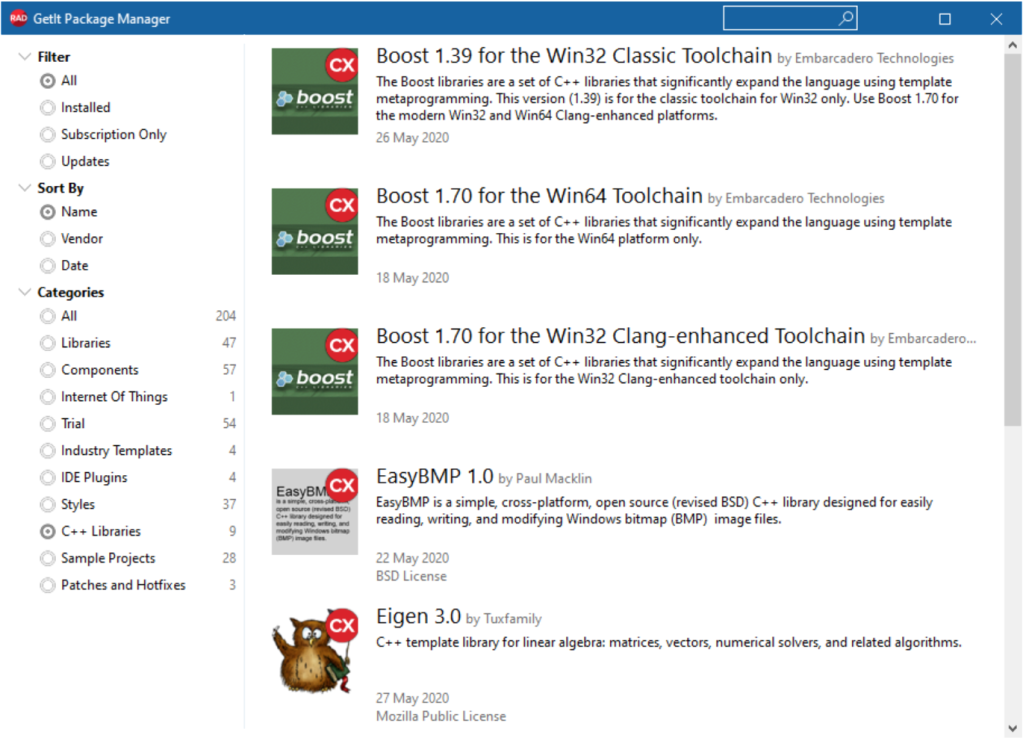There’s lots of ISO C++ news and content happening including the unanimous voting approval of ISO C++20, CppCon2020 (starts Monday September 13, 2020) with Bjarne Stroustrup’s opening keynote “The Power and Beauty of Primitive C++”, TIOBE’s Index for September 2020 headline “Programming Language C++ is doing very well”, C++ programming tips and tricks articles and more.
Links to recent ISO C++ news and articles

CppCon 2020 Opening Keynote – The Beauty and Power of “Primitive” C++ – this keynote is an exploration of a design space close to the hardware and of the use of C++ in that space, rather than a standards proposal or the presentation of a mature tool chain. And, no, by “primitive”, I don’t mean “old-fashioned, C-like” code; some of the general techniques are old, but some of the code requires C++17 and much could be done better given features we are unlikely to get even in C++23. Monday, September 14, 2020 8:45 to 10:00 MDT(Mountain Daylight Time).
TIOBE Index for September 2020 – Headline: “Programming Language C++ is doing very well” – Compared to last year, C++ is now the fastest growing language of the pack (+1.48%). I think that the new C++20 standard might be one of the main causes for this. Especially because of the new modules feature that is going to replace the dreadful include mechanism. C++ beats other languages with a positive trend such as R (+1.33%) and C# (+1.18%).
C++20 approved, C++23 meetings and schedule update by Herb Sutter – On Friday September 4, C++20’s DIS (Draft International Standard) ballot ended, and it passed unanimously. This means that C++20 has now received final technical approval and is done with ISO balloting, and we expect it to be formally published toward the end of 2020 after we finish a final round of ISO editorial work.
Concept archetypes by Andrzej Krzemieński – Concepts in the form added in C++20 used to be called lite. This is because they do not provide one quite important functionality: having the compiler check if the author of a constrained template is only using operations and types allowed by the constraining concept. In other words, we can say that our template only requires operations A and B to be valid, but we can still use some other operations inside and this is fine with the compiler. In this post we will show how this is problematic, even for programmers aware of the issue, and how to address it with concept archetypes.
6 Efficient Things You Can Do to Refactor a C++ Project by Bartlomiej Filipe (Bartek) – Bartek took his old pet project from 2006, experimented, refactored it and made it more “modern C++”. This article contains lessons learned and six practical steps that you can apply in your projects.
volatile and Other Small Improvements in C++20 by Rainer Grimm – This article completes Rainer’s tour through the C++20 core language features with a few small improvements. One interesting of these minor improvements is that most of volatile has been deprecated.
The implication of const or reference member variables in C++ by Lesley Lai – In the conventional wisdom of the C++ community, non-static const or reference data variables are considered problematic. There are solid reasons on why you should avoid const or reference member variables in C++. Nevertheless, like many things in C++, “avoid” does not mean “never use.” And they can occasionally still find some uses.
Using Vim for C++ Development by Adem Budak – Adem shares how he uses Vim as C++ development environment, adding things like code completion, linting, formatting and snippet support. If you come from the IDE land and have been set your options with the checkbox on a GUI, you might need a mental shift to use text based configuration tools, like Vim.
LLVM 10 bolsters Wasm, C/C++, and TensorFlow by Serdar Yegulalp – LLVM 10, an upgrade of the open source compiler framework behind a number of language runtimes and toolchains, is available today after a number of delays. The biggest addition to LLVM 10 is support for MLIR, a sublanguage that compiles to LLVM’s internal language and is used by projects like TensorFlow to efficiently represent how data and instructions are handled. Accelerating TensorFlow with LLVM directly is clumsy; MLIR provides more useful programming metaphors for such projects.
Two VCL Example Applications that Use C++Builder and the C++ Boost Libraries by David I – Boost is a set of open source C++ libraries that build on the ISO C++ programming language. In some cases, the Boost library functionality has become part of recent ISO C++ standards. RAD Studio allows you to install a subset of Boost that has been fully tested and preconfigured specifically for C++Builder. Use the GetIt Package Manager to install the Boost libraries for the Win32 classic C++ compiler, Win32 Clang-enhanced C++ compiler and Win64 Clang-enhanced compiler.
